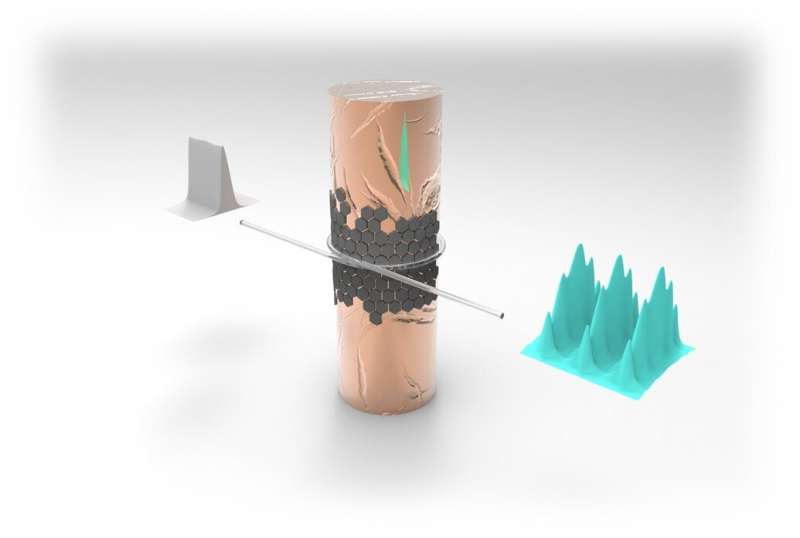Pulsed lasers repeatedly emit light for a short period
of time as if blinking. They have the advantage of focusing more
energy than a continuous wave laser, whose intensity is kept
unchanged over time. If digital signals are loaded in a pulsed
laser, each pulse can encode one bit of data. In this respect, the
higher the repetition rate, the more the amount of data that can be
transmitted. However, conventional optical-fiber-based pulsed
lasers have typically had a limitation in increasing the number of
pulses per second above the MHz level.
Optical data transmission speed increased by a factor of at
least 10,000



